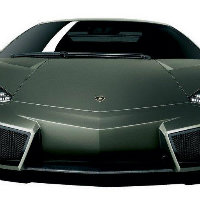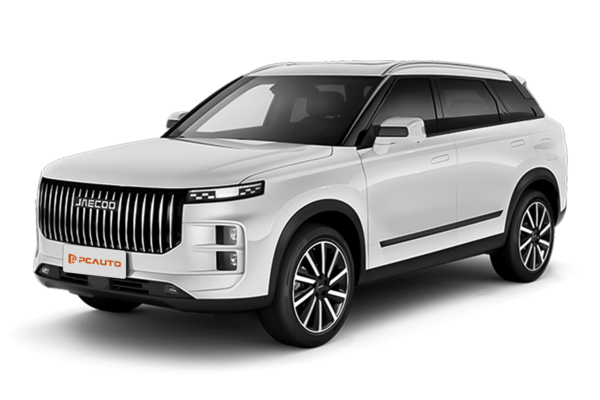Q
jaecoo j7 how many cc
The Proton Persona comes with a 1.6-liter (1597cc) naturally aspirated four-cylinder engine, churning out 107PS of max power and 150Nm of peak torque. It's paired with either a five-speed manual or CVT transmission. This engine strikes a nice balance between city driving and highway cruising, and it's pretty decent on fuel too. As a homegrown Malaysian B-segment sedan, the Persona has won over many family buyers with its affordable price tag and practical features. Its engine is built with durability and low maintenance costs in mind, making it well-suited for Malaysia's road conditions and climate. Understanding engine displacement (cc) is really helpful when car shopping because it directly affects power output and fuel consumption. Generally, a bigger displacement means more power, but it might also guzzle more fuel. Malaysian consumers should weigh power and fuel efficiency based on their daily driving needs, and don't forget to factor in road tax—bigger cc cars mean higher annual road tax bills.
Special Disclaimer: This content is published by users and does not represent the views or position of PCauto.
Related Q&A
Q
Does the Jaecoo J7 have memory seats?
As an SUV targeting the high - end market, the Jaecoo J7 is indeed equipped with a memory seat function. This configuration can store the preferred settings such as seat positions and rear - view mirror angles of different drivers, making it convenient for quick adjustment when multiple people take turns driving. It is especially suitable for family users or business scenarios. In Malaysia's hot weather, its comfort can be further enhanced when combined with the ventilated seat function.
Memory seats are usually linked with configurations such as electric adjustment and lumbar support, which is a common technology in luxury cars. High - end versions of competing models in the same class, such as the Honda CR - V and Toyota RAV4, also offer similar functions. It should be noted that there may be differences between different model years or configuration versions. It is recommended that consumers check the specific configuration list on the official Jaecoo Malaysia website before purchasing or visit an authorized dealer to experience the actual vehicle functions.
This kind of intelligent configuration is gradually being introduced from luxury cars to mainstream models, reflecting the digital development trend of the automotive industry. In the future, more advanced technologies such as facial recognition or remote preset via mobile apps may be integrated.
Q
What fuel does the Jaecoo J7 use?
As an SUV targeting young urban families, the Jaecoo J7 in the Malaysian market uses RON95 gasoline, which is the most common fuel type locally. It fully meets the infrastructure of Malaysian gas stations and driving needs. The 1.6TGDI turbocharged engine equipped in this model has been specifically tuned to fully leverage the anti - knock characteristics of RON95 gasoline. It not only ensures a power output of 156 horsepower but also takes fuel economy into account, making it very suitable for Malaysia's hilly terrain and congested urban roads.
It's worth mentioning that although RON97 gasoline can theoretically bring smoother combustion efficiency, considering the Malaysian government's continuous subsidy policy for RON95 and the limited difference in actual driving experience between the two, using RON95 is undoubtedly a more cost - effective choice. For Malaysian consumers who care about car - maintenance costs, regularly using the fuel additives recommended by the original manufacturer can effectively keep the fuel injectors clean. This kind of maintenance method is more cost - effective than blindly pursuing high - octane fuel.
In addition, Malaysia's hot and humid climate poses a challenge to the fuel system. It is recommended that car owners choose gas stations with a good reputation as much as possible to avoid poor - quality gasoline with excessive moisture content, which may affect the engine's lifespan.
Q
What is the towing capacity of the Jaecoo J7?
As an SUV designed mainly for urban light off - road driving, the towing capacity of the Jaecoo J7 needs to be evaluated in combination with its power and body structure. Although the official hasn't released the specific data yet, referring to SUV models in the same class equipped with 1.6T turbocharged engines (such as the Chery Tiggo series), it is estimated that its towing capacity is between 1,200 and 1,500 kilograms. It is suitable for towing leisure equipment like small yachts, camping trailers, or motorcycles.
For Malaysian users, it's necessary to pay attention to the local regulations regarding vehicle towing. For example, in Peninsular Malaysia, the total weight of the trailer must not exceed 1.1 times the unladen weight of the towing vehicle, and a special hitch and braking system need to be installed. If you often have towing needs, it is recommended to upgrade the cooling system and regularly check the transmission oil temperature, as the tropical climate may increase the engine load.
In addition, the J7's intelligent four - wheel drive system and high - rigidity body design can improve towing stability. However, in actual operation, sudden acceleration or overloading on steep slopes should still be avoided to ensure safety. The towing data of other brands like Proton X90 or Toyota Fortuner can also be used as a horizontal reference, but ultimately, the information on the Jaecoo Malaysia official website or from dealers should be the final reference.
Q
What is auto start stop on Jaecoo J7?
The Auto Start-Stop function of the Jaecoo J7 is an energy-saving technology. When the vehicle stops briefly (such as waiting at a red light or in a traffic jam), the system will automatically shut down the engine to reduce fuel consumption and emissions. When the driver releases the brake or steps on the accelerator, the engine will quickly restart to ensure a smooth drive. This function is particularly suitable for the common urban traffic congestion in Malaysia. It can not only reduce fuel consumption but also decrease exhaust emissions, which is in line with the environmental protection trend.
It should be noted that the Auto Start-Stop function will automatically pause when the battery is low, the air - conditioning is operating at a high load, or the engine has not reached the operating temperature, to ensure driving comfort and vehicle performance. Similar technologies have been widely used in many brand models and have become one of the important means for modern cars to improve fuel economy. Drivers can manually turn off this function through a button, but long - term use can significantly save fuel costs, especially in busy traffic areas like Kuala Lumpur.
Q
What is the safety rating of the Jaecoo J7?
The Jaecoo J7 has a good safety performance. It comes standard with a host of safety features. For example, ABS anti - lock braking system and electronic stability control can enhance the vehicle's stability during emergency braking and on complex road conditions. The seat - belt reminder covers all seats, constantly reminding passengers and drivers to fasten their seat belts. Functions such as blind - spot monitoring, lane departure warning system, autonomous emergency braking/active safety system, and forward collision warning are helpful in detecting potential hazards in advance and avoiding collisions. The vehicle is also equipped with eight airbags, including those for the driver, front - passenger, front - side airbags, head airbags (curtains) for the front and rear rows, and knee airbags. These can effectively protect the people inside the vehicle in the event of a collision. In addition, the ISOFIX child - seat anchor points make it easy to install child seats, ensuring the safety of children in the car. Although there is no specific star - rated safety rating, these abundant safety features can provide reliable safety protection for passengers and drivers.
Q
Is the Jaecoo J7 water resistant?
As an SUV mainly targeting urban light off - roading, the water - proof performance of the Jaecoo J7 is mainly manifested in daily wading scenarios rather than professional diving. Official data shows that its wading depth can reach approximately 600mm, which is sufficient to handle the common rain - flooded roads in Malaysia. This is due to its optimized air intake position and chassis sealing design. However, it should be noted that long - term immersion may still cause damage to the electrical circuits.
For Malaysian consumers, when driving during the rainy season, more attention should be paid to the vehicle's water - proof performance and daily maintenance. For example, regularly check the door seals and chassis drain holes to prevent sand and mud from clogging and affecting the water - proof effect. At the same time, it is recommended to check the braking system in time after wading.
It's worth noting that the water - proof design of most city SUVs on the market is mainly for short - term wading. If you often encounter deep - water areas, you should consider modifying professional configurations such as a wading snorkel. However, this will involve changes to the warranty terms, and it is recommended to consult through official channels.
Q
What cars are similar to the Jaecoo J7?
As a luxury compact SUV, the Jaecoo J7's comparable models can be those in the same class with similar design styles, power configurations, and technological features. For example, the Chery Omoda 5, Proton X50, Haval Jolion, and Toyota Corolla Cross. These models all feature youthful designs, have similar body sizes (around 4.4 - 4.5 meters in length), offer turbo - charged engine options (such as 1.5T or 1.6T), and are equipped with intelligent connectivity systems and ADAS driving assistance features, making them suitable for the urban roads in Malaysia and family needs.
It's worth noting that the Jaecoo J7 stands out in its class with its emphasized "luxury" interior quality and unique exterior design. The Proton X50 has an edge in cost - effectiveness thanks to its local production and well - established after - sales network, while the Toyota Corolla Cross excels in brand reputation and hybrid technology.
If consumers prefer a higher ground clearance or a four - wheel drive version, they can also compare the Mitsubishi ASX or Mazda CX - 30, but the price may go up. It is recommended to take a test drive before purchasing a car. Pay special attention to the space comfort and warranty terms, as the tropical climate in Malaysia places high demands on the air - conditioning efficiency and the stability of the electronic system.
Q
Is Jaecoo J7 a 4x4?
The Jaecoo J7 isn't all 4x4 (four - wheel drive) models. This vehicle comes in multiple drivetrain versions. Among them, the Jaecoo J7 AWD version features four - wheel drive (4x4), which offers better passability and handling stability, making it suitable for dealing with complex road conditions. The Jaecoo J7 2WD version is front - wheel drive, mainly providing the power needed for daily city driving and may have an edge in fuel economy. Additionally, the Jaecoo J7 PHEV 2WD version is also front - wheel drive. It's a plug - in hybrid model, achieving a balance between power performance and energy conservation as well as environmental protection. Consumers can choose the appropriate Jaecoo J7 drivetrain version based on their actual needs, driving scenarios, budget and other factors.
Q
How many seats are in the Jaecoo J7?
As a new luxury intelligent SUV model, the Jaecoo J7 features a standard 5 - seat layout for its seating configuration. This can meet the daily travel or long - distance trip needs of most Malaysian families. The rear seats usually support proportional folding to flexibly expand the luggage space.
In terms of design, this car focuses on seating comfort. The seat materials may offer options like leather or high - grade fabric. Some versions may also be equipped with electric adjustment or heating functions to enhance the experience. For Malaysian consumers, a 5 - seat SUV is particularly practical for urban commuting and weekend self - driving tours. It can ensure sufficient seating space while avoiding the higher road tax costs associated with 7 - seat models.
In the same market segment, the 5 - seat layout is the mainstream choice. Models like the Honda CR - V and Toyota RAV4 adopt similar designs. However, the Jaecoo J7 strengthens its competitiveness through intelligent configurations and a luxurious feel. For example, it may be equipped with an immersive audio system or a panoramic sunroof. These details are quite appealing to Malaysian users who value a sense of technology and comfort.
If consumers need more seats, they can consider other 7 - seat models or MPVs under the brand.
Q
What size battery is in the Jaecoo J7?
As a newly launched SUV model in the Malaysian market, the Jaecoo J7 typically uses a mainstream 12V battery system. Specifically, the capacity might be a lead - acid battery ranging from 60Ah to 70Ah (the specific parameters should be subject to the official manual or dealer information). This type of battery can meet the daily starting and power supply needs of electronic devices.
The climate in Malaysia is hot and humid. It is recommended that car owners regularly check whether the battery electrodes are corroded and avoid long - term parking which may lead to battery discharge, so as to extend the battery life. If considering an upgrade in the future, enhanced batteries such as AGM or EFB can be selected. They are more heat - resistant and have better cyclic charging performance, but it is necessary to confirm the compatibility with the vehicle's electrical system.
In addition, some maintenance centers in Malaysia offer free battery testing services. Car owners can take advantage of these services to ensure that the vehicle's power system is in good condition.
Popular Cars
Model Year
Car Compare
Car Photo
Latest Q&A
Q
Do I need an alignment after rotation?
Whether a four-wheel alignment is needed after tire replacement depends on the actual condition of the vehicle. If only the tires are replaced and the vehicle has been driving normally without deviation, steering wheel vibration, or uneven tire wear, a four-wheel alignment is usually not required immediately, but wheel balancing must be performed to ensure stability when the wheels rotate at high speeds. However, if problems such as directional deviation, reduced steering precision, misaligned steering wheel, or abnormal tire wear (e.g., one-sided wear) occur after tire replacement, four-wheel alignment is necessary to adjust the geometric parameters of the suspension system (including caster angle, front wheel camber, etc.), thereby restoring the vehicle's straight-line driving stability and uniform tire contact with the road. Moreover, if chassis component repairs (such as suspension or steering system) are involved during tire replacement or the vehicle has been in a collision, four-wheel alignment becomes an essential step, as it can effectively reduce abnormal tire wear, improve handling safety, and lower fuel consumption. It is recommended to check the alignment parameters regularly every 20,000 kilometers or once a year. If you frequently encounter rough road conditions (such as curbs or speed bumps) during daily driving, the inspection interval should be shortened accordingly. Professional technicians can measure the data using specialized equipment and compare it with the manufacturer's specifications to determine whether adjustments are needed.
Q
Is it okay to rotate tires every 10,000 km?
Rotating tires every 10,000 kilometers is a reasonable and necessary maintenance measure, especially for fuel vehicles, as this frequency can effectively balance the wear difference between front and rear tires. Tire rotation involves regularly adjusting the installation positions of tires (e.g., moving front tires to the rear), which ensures more uniform wear across all tires, thereby extending the overall service life by approximately 20%-30%. For fuel vehicles, it is recommended to rotate tires every 10,000 kilometers, while for new energy vehicles, due to their greater weight and stronger torque output, the interval should be reduced to 8,000 kilometers. During rotation, the cross-rotation method should be employed (i.e., moving front tires to the opposite rear positions), and tire pressure should be checked simultaneously to ensure it meets the specified standards (2.3-2.5 bar for fuel vehicles, with an additional 0.2 bar for new energy vehicles). It is important to note that if a tire exhibits abnormal unilateral wear, bulges, or tread depth below 1.6 millimeters, simple rotation is not recommended and the tire should be replaced immediately. Regular monthly tire pressure checks and removal of debris from treads can further enhance tire performance and safety.
Q
What happens if you don't rotate tires?
If tire rotation is not performed regularly, it will lead to uneven tire wear, which in turn causes multiple problems. For front-wheel-drive vehicles, the front tires bear both driving and steering functions, so their wear rate is significantly faster than that of the rear tires; for rear-wheel-drive vehicles, since power is concentrated on the rear tires, the rear tires wear more noticeably. Long-term failure to rotate tires will shorten the overall tire life by 20%-40%—the front tires may be scrapped prematurely while the rear tires remain relatively new, resulting in resource waste. In addition, uneven wear reduces traction, particularly on wet surfaces, which can easily lead to skidding or a 10%-15% increase in braking distance, thereby elevating driving risks. Irregular wear also exacerbates tire noise and increases fuel consumption by 0.3-0.8 liters per 100 kilometers due to uneven rolling resistance. It is recommended to rotate tires every 10,000 to 15,000 kilometers. For front-wheel-drive vehicles, the cross-rotation method should be employed (left front to right rear, right front to left rear), while for rear-wheel-drive vehicles, the rear tires need to be crossed to the front. After rotation, tire pressure (the standard value typically ranges from 2.3 to 2.6 bar) should be verified and wheel balancing performed to prevent high-speed vibrations. If the tires exhibit irregular wear patterns or the tread depth falls below 1.6 mm, they should be replaced immediately. Regular tire rotation not only prolongs tire lifespan but also enhances fuel efficiency and driving safety. The cost of a single rotation is approximately 50 to 100 ringgit, substantially lower than the expense of premature tire replacement.
Q
Is it good to rotate car tires?
Tire rotation is an important maintenance measure to ensure even tire wear and extend service life. It is recommended to perform it every 5,000 to 10,000 kilometers or when uneven wear is detected. For front-wheel drive vehicles, the front tires wear faster as they handle steering and braking tasks, so they need to be cross-rotated with the rear tires (left front to right rear, right front to left rear). For rear-wheel drive vehicles, the rear tires should be diagonally swapped with the front tires to balance the wear of the drive wheels. If the tires have a directional tread pattern or asymmetric design, the rotation direction must be maintained, and only front-to-rear swaps on the same side are allowed to avoid affecting handling on wet and slippery roads. After rotation, the tire pressure should be adjusted to the standard for the corresponding wheel position, and it is recommended to perform dynamic balancing and four-wheel alignment simultaneously to optimize driving stability. Note that snow tires or studded tires cannot be rotated, and tires with different front and rear sizes can only be swapped left and right. Regular rotation can reduce abnormal wear (such as uneven wear or wavy patterns), improve grip and driving quietness, reduce safety hazards caused by tire problems, and save replacement costs in the long run. The specific operation should be based on the vehicle manual. If there is a lack of guidance, the cross-rotation method for bias-ply tires or the same-side rotation method for radial tires can be prioritized.
Q
How often should car tyres be rotated?
The replacement cycle of car tires should be determined by comprehensively considering factors such as service life, mileage, driving habits, and environmental conditions. Generally, it is recommended to replace them every 3 to 5 years or after 60,000 to 80,000 kilometers of driving, whichever comes first. As rubber products, tires deteriorate over time. Even if the mileage threshold hasn't been reached, immediate replacement is necessary when sidewall cracks, bulges appear, or tread depth falls below 1.6 mm (verifiable with a coin test) to ensure safety. Due to their heavier weight and stronger torque output, new energy vehicles experience accelerated tire wear. It is advisable to shorten the inspection interval to every six months, with urban commuting replacement mileage typically ranging from 42,000 to 56,000 kilometers. Regular tire rotation helps distribute wear evenly. For front-wheel-drive vehicles, front-to-rear rotation every 8,000 to 10,000 kilometers is recommended, while for new energy vehicles with higher front axle loads, this interval can be reduced to 6,000 to 8,000 kilometers. Additionally, maintaining cold tire pressure at 2.3 to 2.5 bar (add 0.2 bar for new energy vehicles) and avoiding aggressive maneuvers like rapid acceleration and hard braking can extend tire lifespan by 15% to 20%. Tires exceeding 6 years from their production date (identifiable via the DOT code on the sidewall) should be replaced regardless of apparent condition.
View MoreRelated News

Jaecoo J7 2026: Full Specs, OTR Pricing, PHEV Details & Competitor Comparison
RobertFeb 26, 2026

About Jaecoo J7, 3 Things Car Owners and Prospective Owners Need to Know
MichaelFeb 22, 2026

Jaecoo J7 Fuel Version vs PHEV Comparison: Is the RM 10,000 Price Difference Just for Fuel Savings?
AshleyFeb 21, 2026

The title you've entered appears to already be in English, not containing any Chinese text. If there's any additional context or content you'd like me to process, feel free to provide it!
RobertFeb 19, 2026

2026 SUV Battle: Jaecoo J7 vs. Haval H6 vs. Jetour Dashing
AshleyFeb 18, 2026
View More













 Cars
Cars




Pros
Cons